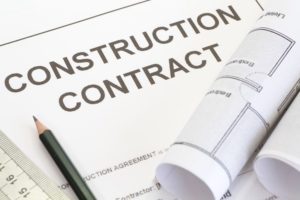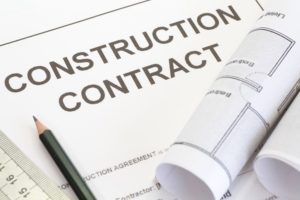
 Once you have gone through the process of vetting potential builders and developing the plans for your remodeling project or new custom home, one of the final steps before construction can begin is to sign a contract with your chosen builder. This typically means signing the builder’s form agreement. Often times, the builders’ salespeople will say that the company’s contracts are offered on a “take it or leave it” basis.
Once you have gone through the process of vetting potential builders and developing the plans for your remodeling project or new custom home, one of the final steps before construction can begin is to sign a contract with your chosen builder. This typically means signing the builder’s form agreement. Often times, the builders’ salespeople will say that the company’s contracts are offered on a “take it or leave it” basis.
Regardless of whether your builder is willing to negotiate, it is important to make sure you understand the terms of your contract. If you do not know what you are signing, you could very well run into unexpected – and unhappy – surprises before your project is complete. Builders often include terms in their contracts that deprive homeowners of important rights and limit the remedies they have available. For this reason when customers complain, they will often point to their contracts in order to justify less-than-acceptable build quality.
5 Common Terms in Custom Homebuilding and Remodeling Contracts
To illustrate the point, here are five provisions you are likely to see in your custom homebuilding or remodeling contract:
1. Waivers and Exclusions
While builders will often “pass through” third-party warranties for things like fixtures, appliances, and building materials, it is standard practice for builders to disclaim as much of their own responsibility as possible. Builders will frequently disclaim implied warranties that exist under Florida law in the absence of a written agreement; and, when they provide warranties, they will often place extremely low caps on their warranty liability.
2. Changes to the Scope of Work
Standard building contracts often include “change order” provisions that are extremely builder-friendly. For example, customers may need to pay a fee and seek approval for any requested changes, while builders will reserve substantial leeway to make changes (such as substituting materials or making design modifications) as “deemed necessary” on the fly.
3. Time Extensions
The timing provisions of building contracts are often similarly one-sided. Builders will typically reserve the right to stop work immediately if a customer fails to make a required payment, yet they will have the flexibility to extend build times – often significantly – if they get behind schedule.
4. “Substantial Completion”
Custom homebuilding and remodeling contracts will often require the final customer payment to be made upon “substantial completion” of the project. But, what constitutes “substantial completion”? Construction disputes will often arise toward the end of projects when builders claim to have met their contractual obligations and their customers still expect more to be done.
5. Dispute Resolution
Finally, builders will often use the “dispute resolution” provisions of their contracts to dissuade customers from exercising the limited rights they have available. From short (and often extremely-short) timelines for asserting claims to mandatory arbitration clauses and attorneys’ fees provisions, there are a number of standard “mutual” clauses that actually serve to help protect the builder.
Contact the St. Augustine Construction Lawyers at Ansbacher Law
If you are preparing to enter into a custom homebuilding or remodeling contract, or if you are facing a dispute with your builder, we encourage you to contact us for a confidential consultation. Our attorneys have extensive experience in construction contract negotiations and litigation, and we can help you make informed decisions about protecting your home and your financial interests. To schedule an appointment at our office in St. Augustine, please call (904) 737-4600, or submit a request online and we will be in touch as soon as possible.
